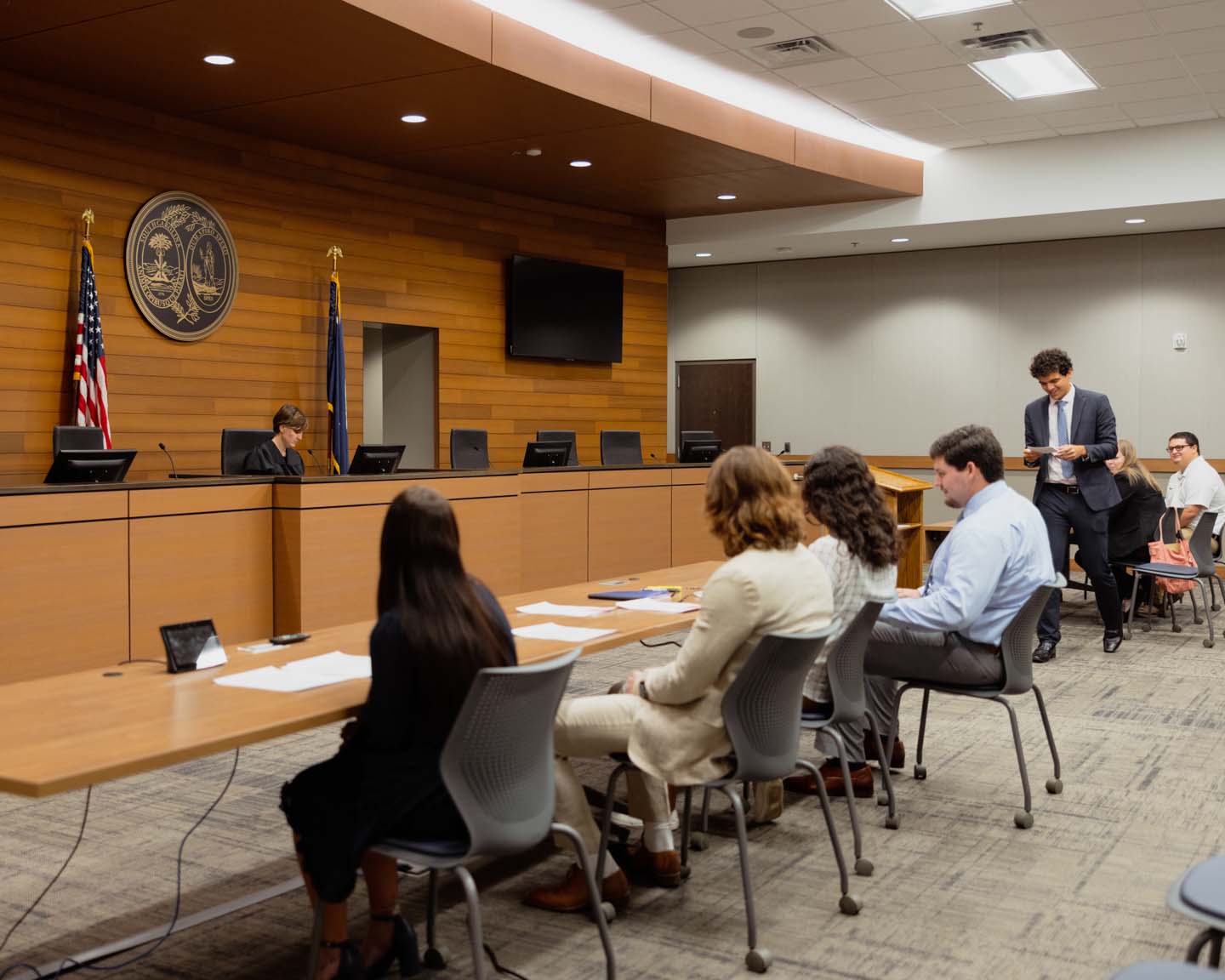Year 1 Sample Courses
- Introduction to Criminal Justice
- Oral Communication
- Theories in Criminology
- Introduction to Information Technology
- Sociology
Defend. Protect. Serve.

From crime scenes to courtrooms, secure justice for all through a criminal justice and legal studies BA degree at NGU.
Prepare to enter one of many professions rooted in criminal justice. Crime scene investigator. Law enforcement officer. Attorney. Cybercrime analyst. Probation officer. Social worker. Even special agents with the FBI, DEA, or Secret Service.
On scene or in the lab. Wearing a badge or advocating in court. Preventing crime or bringing criminals to justice. Whatever your calling, pursue it with passion at NGU.
Choose from the following concentrations to specialize in the area of your interest:
With a bachelor’s degree in criminal justice and legal studies, you can pursue a variety of rewarding career options in the legal and criminal justice fields. Your expertise will prepare you for roles in law enforcement, corrections, paralegal work, or even positions in government agencies focused on criminal justice policy and administration.
Additionally, you may choose to further your education in law school to become an attorney and advocate for justice in the courtroom.
Correctional Officer
FBI Agent
Lawyer
Paralegal
Police Officer
Probation Officer

Intern with government agencies or political offices. Serve in national, state, and local law enforcement agencies. Experience real-world work environments in political science, criminal justice, or legal studies. Expand your network and elevate your ability, all thanks to NGU’s internships.
Assist professors on research projects. Contribute to NGU’s criminal justice newsletter. Even manage the Criminal Justice Club. Put your passion for justice to good use while you complete your studies.


Law enforcement training facilities. Forensic laboratories. The state legislature. Envision your future like never before as you tour various agencies you might one day work for. It’s an elevated take on field trips – at NGU.

You’ll also take Chapel for the first seven semesters, and Cultural Events for the first four semesters. This is the NGU difference, how you find your peak performance and elevate your perspective, intellectually, emotionally, and spiritually.
North Greenville University (NGU) admits students of any race, color, national and ethnic origin to all the rights, privileges programs, and activities generally accorded or made available to students at the school. It does not discriminate on the basis of race, color, national and ethnic origin in the administration of its educational policies, admissions policies, scholarship and loan programs, and athletic and other school-administered programs.